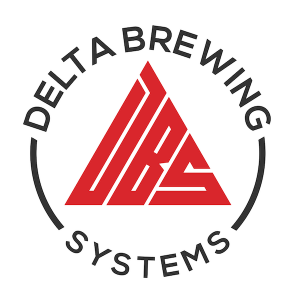Author: Marshall Schott
The first real episode of The Brülosophy Podcast is available now in most podcast feeds!
The focus of this episode is on a variable near and dear to my heart as it was the xBmt that started it all– how kettle trub in the fermentor impacts beer. With contributor Malcolm Frazer, we discuss the original impetus for testing this variable, conventional thinking on kettle trub, results from previous xBmts, and how our perspectives and methods have changed due to these results. Come join us as we think beer!
[soundcloud url=”https://api.soundcloud.com/tracks/312629839″ params=”color=ff5500&auto_play=false&hide_related=false&show_comments=true&show_user=true&show_reposts=false” width=”100%” height=”166″ iframe=”true” /]
| Relevant Links |
Kettle Trub – Pt. 1: The Great Trub exBEERiment
Kettle Trub – Pt. 2: Replication Using Triangle Test
If you have thoughts about the show or the topic discussed, please don’t hesitate to leave them in the comments section below!
Support Brülosophy In Style!
All designs are available in various colors and sizes on Amazon!
Follow Brülosophy on:
FACEBOOK | TWITTER | INSTAGRAM
If you enjoy this stuff and feel compelled to support Brulosophy.com, please check out the Support Us page for details on how you can very easily do so. Thanks!















12 thoughts on “The Brülosophy Podcast | Episode 001: Kettle Trub”
I’ll start to love my trub a little more 🍻I’ve noticed not foam after heavy trub/difficult filtrations – any recommendations? I bottle all my beers. Thank you for a great show. Cheers from DK
Is this only in audio? Or am I missing some text here? I am a loyal reader of this blog and love this blog. Luckily I am Deaf, so I have been able to read everything.
Hi Michael, the podcast is basically an audible version of our previous xBmts. You are not missing much!
Amazing experiment.
Is there a link to the plain RSS feed for the podcast somewhere?
http://feeds.soundcloud.com/users/soundcloud:users:288784331/sounds.rss
Awesome, thanks!
Great podcast. Solid production and you guys don’t talk over one another or descend into too many jokes. I also appreciated the organization into the topic followed by your practices. Keep it coming!
Thanks!!
Excellent podcast! The upshot for me is not to stress about adding hops directly in the boil. I used to use hop bags to generate less trub and worried a bit when I just added them to the boil. Looking forward to the next podcast!
When you state that you now simply pour all of your trub into the fermenter, does that include the slime coated pellet hop residue, or do you try to get that out?
I think this is an interesting point and something I haven’t seen a lot of discussion about. We talk about “grub” like it’s a singular thing, but its amount and composition can vary greatly based on recipe and process.
I use a hop screen in my 5G batches and typically don’t worry about letting the grub settle much after chilling. Repitching yeast from those batches is a no brainer for me.
However, occasionally I brew 1G stovetop batches to try out a new recipe or in lieu of making a large starter. In those cases I just toss the pellets into the kettle and dump it all into my fermentor. In those cases, I have to admit I get a little heartburn about the amount of green hop sludge mixed in with the yeast.
I would assume that there is some chance for small amounts of carryover hop bitterness/flavor/aroma (maybe inconsequential if pitching into a similar hop profile, but the truly yeast cake from a pale ale may not be a great yeast cake to reuse for a more malt forward style).
I guess this is a long-winded way of saying that all trub is not created equal?